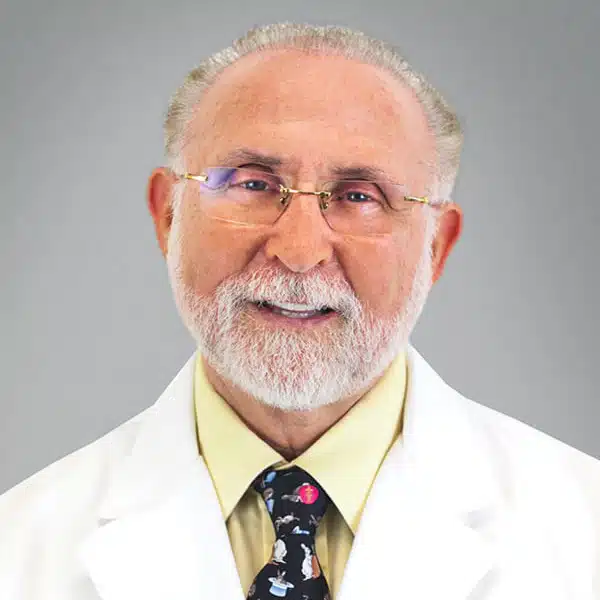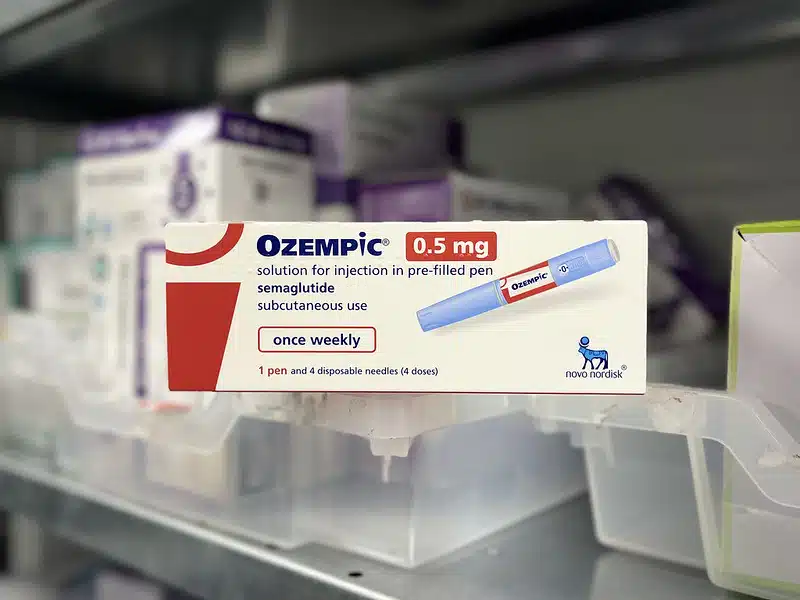Over 37 million Americans have diabetes. That's a staggering one in ten people, and 90%-95% of them have type 2 diabetes. Over 150 medications exist to treat type 2 diabetes with various levels of effectiveness and side effects.
Prescription drugs often have unanticipated side effects that have value in treating other conditions than the ones initially prescribed to treat. Ozempic is one such medicine. Doctors found diabetes patients were losing weight, an unintended but beneficial result of the Ozempic regimen.
But it was how patients lost the weight that doctors found most intriguing. Ozempic didn't increase the metabolism to burn more calories like many weight loss medications. Instead, Ozempic curbed the desire for food and reduced appetites. Doctors and researchers are now asking if Ozempic can reduce food cravings, what other unhealthy desires might it work on?
What Is Ozempic?
The brand name Ozempic is a glucagon-like peptide-1 (GLP-1) analog diabetes medication. It's also called an incretin mimetic. Doctors prescribe Ozempic to help manage patients' blood glucose levels.
People with type 2 diabetes inject Ozempic weekly at home. These GLP-1 medications increase incretin levels, a hormone responsible for insulin production when needed. In addition, Ozempic reduces glucose production by the liver.
However, Ozempic has two side effects that lead to weight loss. First, it reduces your appetite, inhibiting your brain's desire for food. Second, it causes digestion to slow, leaving food in your belly, making you feel full longer.
In addition to these beneficial side effects, people who take Ozempic can also experience constipation, diarrhea, altered taste, and in rare instances, acute pancreatitis. Plus, if you already suffer from retinopathy, a common diabetic eye disease, you could experience worsening vision. As with all medications, side effects and their degree vary from person to person.
Ozempic and Desire
The way Ozempic reduces food cravings has researchers hopeful, but more research is necessary to determine precisely how Ozempic affects brain chemistry and what other desires it inhibits.
For example, if Ozempic affects your brain's chemistry to reduce the desire for food, can this also help reduce cravings in people fighting addictions, such as alcohol and drugs?
We must also consider the potential adverse effects related to reduced desire. Could Ozempic lessen a person's sexual desire? Might it make a person less engaged at work?
According to the University of Michigan's Professor Berridge, Ozempic affects two primary pleasure types: wanting and liking. The feeling of wanting empowers people to focus on achieving their desires. The pleasure gained in liking gives you the satisfaction of achieving your goal.
Dr. Berridge and other neuroscientists have linked how wanting and liking use connected circuitry in the brain. He theorizes that an addict's wanting increases with drug use. At the same time, liking levels off or lowers with increased use and leaves the addict earnestly seeking that thing that no longer provides satisfaction.
Skeptics of food addiction persist, but new studies show that some people crave food like an addict craves drugs. The same principle holds for sex addicts. The joy a person experiences eating, using drugs, and having sex feels different. However, our brains use the same wiring to process these feelings. The urges associated with them rely on dopamine, a powerful neurotransmitter, and other natural brain opioids. This allows our brain to moderate our wants depending on what it considers most important at any given moment.
This explains why we don't want or like things once we've satisfied a need. For example, you stop eating once you feel full because you no longer want or like food as you did before you started eating. So we now know that pleasure depends on the context and is relative. You might enjoy something now, but not later once you've satisfied your wanting and liking feelings.
Ozempic and Addiction
Medications such as Ozempic act differently than traditional drugs meant to fight addiction. For instance, doctors prescribe methadone to opioid addicts. Methadone satisfies opioid cravings without the adverse effects that prevent a normal life.
Other medications target and block opioid receptors, such as naltrexone. However, these types of medications can affect other liking pleasures not associated with drugs or alcohol. Many patients on these medications cite they interfere with socializing. Simply put, they don't find joy in social activity.
Glucagon-like peptide-1 medications, such as Ozempic, moderate the impulse dopamine systems without tamping overall desire. Your brain determines when something becomes important and when it no longer needs something. Ozempic effectively lowers a person's set point for these desires. With food, it reduces the urge to eat.
Research on GLP-1 drugs to date has had mixed results, and experts agree that more research is necessary. The possibility that Ozempic or similar medications could move the set point for cravings that tell a person they've had enough is fascinating. Addicts don't have an off switch that tells them to stop.
For example, alcoholics lack the ability to stop when they've had enough, leading to binge drinking and other social issues. On the other hand, people who drink in moderation know precisely when they've had enough and stop drinking.
If we can find a way to create an off-switch set point, addiction could become a thing of the past. Dr. Berridge believes GLP-1 medications could be the key to controlling desires. He theorizes that GLP-1 drugs work by shifting attention away from desires rather than blocking pleasure. Many people taking Ozempic have reported ending compulsive habits, supporting this idea.
Does Ozempic Curb Addiction?
As psychiatrist Donald Klein once said, the pleasures of the hunt and the pleasures of the feast are the two motivating factors of desire. We need more data to confidently answer the question of whether Ozempic curbs all addictions.
Ozempic reduces the desire to eat and obsessive behaviors, such as nail biting or compulsive shopping. As such, GLP-1 drugs interfere with wanting and liking, but the brain's complex circuitry makes it challenging to predict how large an impact it can have on drug and alcohol addictions without more research.
Is Ozempic Your Solution to Addiction?
At the biostation, we strive to provide a personalized approach to medicine. If you struggle with weight loss or addiction, we encourage you to contact us to schedule a consultation. One of our medical professionals will help you understand the potential improvements you could enjoy with Ozempic or the many other therapies we offer.
Box of Ozempic / Wegovy Pen - 0.5mg by Chemist4U is licensed with CC BY-SA 2.0
 East Delray, Florida
East Delray, Florida West Delray, Florida
West Delray, Florida The Boca Raton, Florida
The Boca Raton, Florida Midtown Miami, Florida
Midtown Miami, Florida Carillon Wellness Resort
Carillon Wellness Resort  Williams Island
Williams Island  Midtown Tampa, Florida
Midtown Tampa, Florida Life Time
Life Time Grand Wailea
Grand Wailea  NOW OPEN
NOW OPEN  COMING SOON
COMING SOON 
